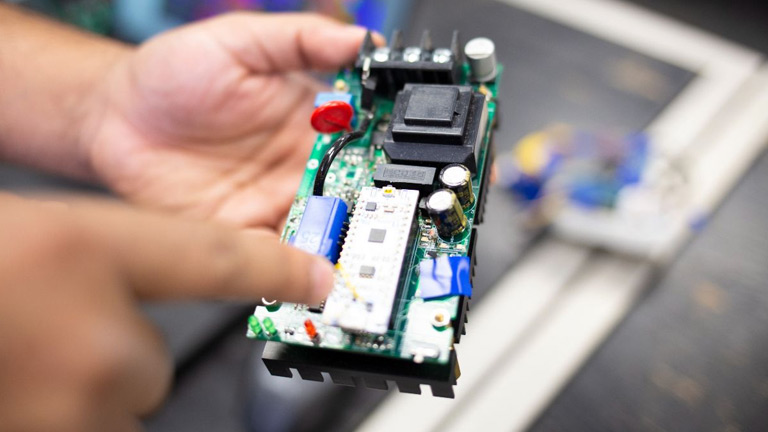
The Biden-Harris administration announced Tuesday the designation of 31 Regional Technology and Innovation Hubs, as well as the recipients of 29 Strategy Development Grants (SDG) awarded by the United States Economic Development Administration (EDA). Both actions represent the first phase of the EDA’s Tech Hubs Program, which aims to strengthen U.S. economic and national security with investments in regions across the country.
The Department of Commerce calls Tech Hub designation an endorsement of a region’s plans to “supercharge their respective technological industries to create jobs, strengthen U.S. competitiveness, and protect national security.” Tech Hubs designees can apply directly for future Tech Hubs implementation funding.
The SDGs are meant to help recipients increase local coordination and planning activities, which could make them more competitive for future Tech Hub funding opportunities, says the EDA. One such recipient is the Midwest Wireless Innovation Strategy Development Consortium which includes University of Notre Dame, Illinois Institute of Technology and others.
The consortium—serving Illinois, Indiana and Michigan—will develop a strategy to connect, strengthen and grow a network of 21 physical centers into innovation clusters that specialize in advanced technology innovation, commercialization and workforce training, the consortium says.
“This is quite an honor and a ringing endorsement for our work pushing the boundaries of advanced wireless technology,” says Cynthia Hood, associate professor of computer science and engineering and Illinois Tech’s faculty lead in the consortium. “This Strategy Development Grant will enable us to further our research, collaborate more deeply with our partners and accelerate the implementation of advanced wireless solutions in the Midwest.”
The winners of Phase One of the Tech Hubs Program were selected from nearly 400 applications from regional consortia that include industry, academia, state and local governments, economic development organizations, and labor and workforce partners. As part of the Tech Hubs competition, each consortium outlined plans for strengthening its region’s capacity to manufacture, commercialize, and deploy critical technologies.
